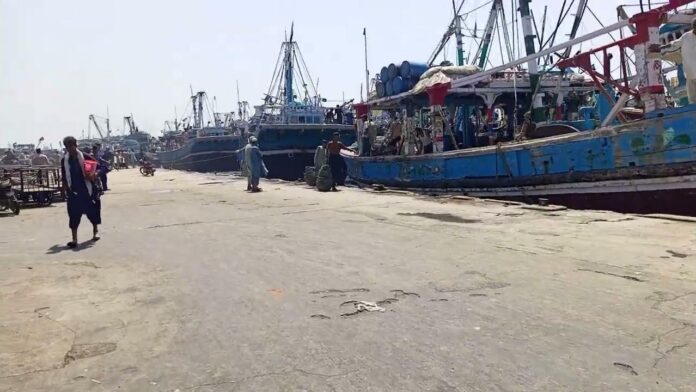In a major policy shift aimed at revitalizing its underperforming fisheries sector, Pakistan on Wednesday launched a 10-year National Fisheries and Aquaculture Policy (2025–2035). The plan sets out a roadmap for sustainable development, food security, and unlocking the economic potential of the country’s vast marine and freshwater resources.
The announcement came during a national workshop hosted by the Ministry of Maritime Affairs, with technical assistance from the Food and Agriculture Organization (FAO) of the United Nations.
Federal Minister for Maritime Affairs, Muhammad Junaid Anwar Chaudhry, underscored the importance of the initiative, noting that despite Pakistan’s expansive inland and marine waters, fisheries and aquaculture currently contribute less than 0.5% to the country’s GDP.
“The Ministry of Maritime Affairs will continue to lead on national commitments, including enhancing seafood exports and fulfilling international obligations,” the minister said in his keynote remarks.
The new policy emphasizes the role of the fisheries sector in addressing food insecurity, reducing poverty, and promoting economic growth through more effective collaboration between provincial and federal institutions.
Covering a broad spectrum of policy areas, the framework prioritizes environmental stewardship, climate resilience, labor and child welfare, gender inclusion, and the adoption of modern aquaculture technologies. Institutional reform and capacity-building are also central pillars of the plan.
Speaking at the event, Secretary for Maritime Affairs Syed Zaffar Ali Shah stressed that the policy directly confronts existing challenges such as overfishing and weak regulatory oversight. He said proper management and value chain development could help the sector generate up to $10 billion in economic value.
FAO Representative in Pakistan, Florence Rolle, praised the policy’s inclusive design, noting that all provinces were consulted in the drafting process. She highlighted Balochistan’s proactive efforts in fisheries management as a model for others to follow.
“The policy reflects voices from all provinces and aligns with international environmental and sustainability standards,” Rolle said. She added that the reforms, if implemented with a climate-conscious approach, could draw significant global investment into the sector.
Dr. Syed Murtaza Hassan Andrabi, Animal Husbandry Commissioner at the Ministry of National Food Security and Research, emphasized the need to strike a balance between ambition and feasibility. He pointed to the sector’s ecological diversity and vulnerability to climate change as key factors that must shape implementation.
The FAO’s Senior Policy Specialist, Dr. Kanwar Muhammad Javed Iqbal, walked participants through the policy’s various investment incentives, including those focused on pollution control, environmental conservation, women’s empowerment, and safe labor conditions.
Panel sessions during the workshop addressed governance reforms, aquaculture development strategies, and cross-cutting themes related to environmental and social protection.
Stakeholders from across Pakistan—including fishing communities from Balochistan and Sindh, academic experts, and government officials—participated in the event.
The launch also comes as Pakistan formally accedes to the World Trade Organization’s agreement on fisheries subsidies, signaling its commitment to global standards in sustainable fisheries governance.




